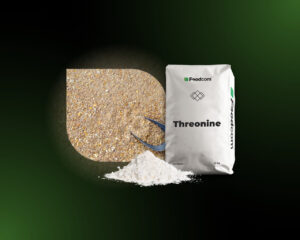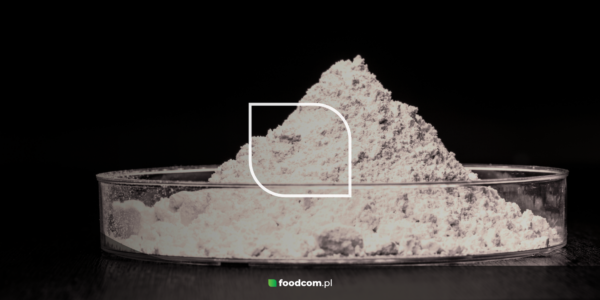- Multiple biological functions: amino acids, both protein and non-protein, play key roles in protein structure, metabolism and regulation of biological processes.
- Cosmetics and regeneration: in cosmetics, they help moisturize skin, strengthen hair and synthesize collagen, delaying the aging process.
- Pharmacy and supplements: in pharmacy, they are used for therapeutics, dietary supplements and supporting the nervous and immune systems.
- Animal nutrition: in animal feeds, they promote growth, improve animal health and increase breeding efficiency.
Amino acids are organic compounds that play a fundamental role in many biological processes. Due to their chemical and biological properties, they are widely used in various industries. In this article, we will look at their role in the cosmetic, pharmaceutical and animal nutrition industries.
Types of amino acids and basic functions
Amino acids are divided into protein and non-protein amino acids, depending on their function and role in living organisms. Protein amino acids (e.g. glycine, leucine, lysine) are the basic building blocks of proteins, which have structural, enzymatic and transport functions. Non-protein am ino acids (e.g. gamma-aminobutyric acid – GABA, ornithine, citrulline) are not part of proteins, but play important roles in metabolism, regulation of physiological processes and as neurotransmitters.
Protein amino acids can be further divided into exogenous (essential, e.g. methionine, which must be supplied from the diet) and endogenous (synthesised by the body, e.g. alanine). The functions of amino acids are extremely diverse. Among the most important are the construction of proteins, the synthesis of hormones and neurotransmitters, the maintenance of nitrogen balance and the general regulation of biochemical metabolism, as most enzymes are proteins.
Non-protein amino acids are often involved in specific biochemical reactions, such as the urea cycle or detoxification. Both groups are essential for the proper functioning of organisms, and their diversity enables them to perform many specialised biological functions.
Amino acids in the cosmetics industry
In the cosmetic industry, amino acids are very popular due to their moisturising, nourishing and regenerating properties. Protein amino acids such as glycine, proline, serine or arginine are mainly used in cosmetics . They are ingredients in skin, hair and nail care preparations. They primarily provide:
- hydration and regeneration of the skin – protein amino acids such as serine and glycine are the main components of the natural moisturising factor (NMF), which helps to maintain adequate moisture levels in the skin. Cosmetics based on such amino acids support the regeneration process of the epidermis, which makes the skin look younger and healthier,
- hair care – keratin, the main component of hair, is rich in amino acids such as cysteine and arginine. Enriching shampoos, conditioners or hair masks with these amino acids improves the structure of the hair, strengthening it and preventing breakage. Arginine additionally promotes microcirculation in the scalp, which stimulates hair growth,
- anti-ageing cosmetics – proline and hydroxyproline promote the synthesis of collagen – the basic protein responsible for skin firmness and elasticity. As a result, they are used in anti-wrinkle creams and serums.
Use of amino acids in the pharmaceutical industry
Amino acids also play an important role in the pharmaceutical industry, where both protein and non-protein amino acids are used. They form the basis of many therapies, dietary supplements and medicines.
Many supplements contain amino acids that support muscle regeneration, improve immunity or support nervous system function. Examples include leucine, which supports muscle protein synthesis, or glutamine, which enhances immune system function.
Arginine and lysine are used in the treatment of certain diseases. Arginine, thanks to its vasodilating properties, is used in the treatment of hypertension and cardiovascular problems. Lysine, on the other hand, helps in the fight against the herpes virus, as it inhibits the HSV-1 virus.
Some non-protein amino acids, such as gamma-aminobutyric acid (GABA), are used as chemical messengers in the nervous system and can be a component of drugs for depression or anxiety. In addition, they act as drug carriers, facilitating their transport to target cells.
Amino acids in animal nutrition
Another industry in which amino acids play an important role is animal nutrition. They are an essential ingredient in animal feeds, as they promote growth, improve animal health and increase breeding efficiency.
Amino acids in food such as lysine, methionine and threonine are very important in the diets of poultry, cattle and pigs. The addition of these ingredients to compound feeds increases weight gain, improves meat quality and reduces protein consumption, which is both economically and ecologically important. Lysine and methionine promote muscle development and strengthen the immune system, which is particularly important in intensive farming. These amino acids also help in the synthesis of enzymes and hormones that regulate animal metabolism.
In aquaculture fish nutrition, methionine and taurine play a special role. In horses, on the other hand, supplements containing glycine and arginine are popular to promote muscle regeneration after exercise.
The market for amino acids in the future
The use of amino acids in various industries is constantly evolving. In cosmetics, there is a growing interest in their natural sources, such as protein hydrolysates. In pharmacy, their potential in gene therapies and cancer treatment is increasingly being explored. In animal nutrition, biotechnology is becoming increasingly important in the production of amino acids, which can further increase the efficiency of livestock farming and have an impact on environmental protection.
Amino acids, both protein and non-protein, have versatile applications and their specific chemical and biological properties make them indispensable in many fields. Polish trading company Foodcom S.A. specialises in the global distribution of many food products, including amino acids. Regardless of the industry, their role in improving quality of life and production efficiency is undeniable.












